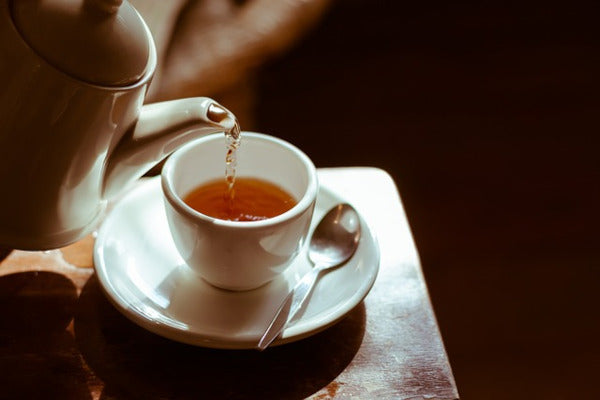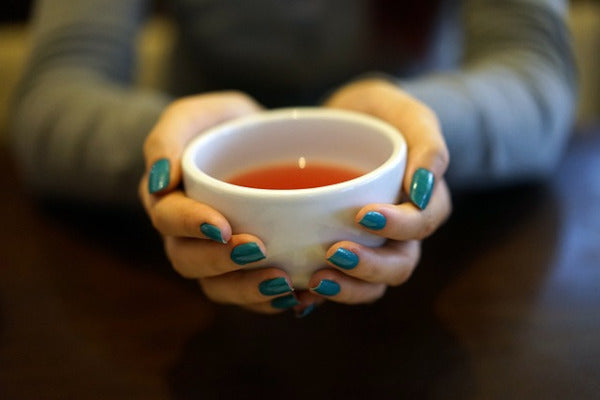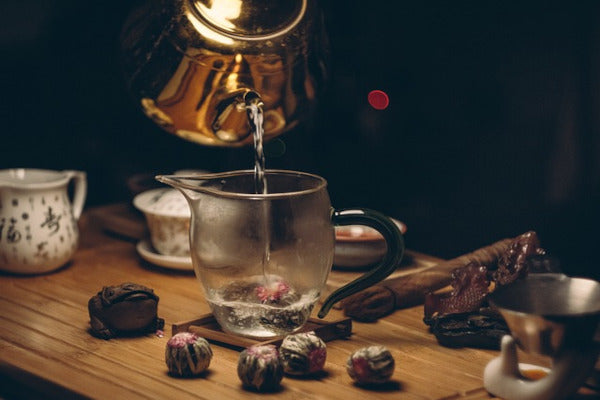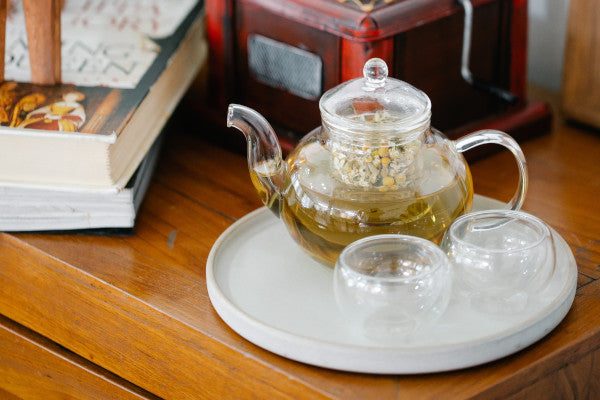The popularity of matcha tea has grown considerably worldwide due to its countless medicinal and healing properties. This green powder is the result of pulverizing its leaves, thus multiplying the usual benefits of green tea tenfold. In this post, we'll talk about matcha tea for bloating . Does it help?
Due to its high amino acid content, matcha tea is a good remedy for combating abdominal bloating. This condition frequently occurs during the summer, when blood vessels dilate due to rising temperatures. When this occurs, it's best to drink plenty of water and eat foods high in fiber.
What is matcha and what is it used for?
You've probably heard about matcha tea for bloating . It's a type of green tea that originated in China, although many people associate it with Japanese culture. However, it was in China, during the Song Dynasty, that this tea began to be consumed. This is what is known today as Zen Buddhism, which uses meditation to relax and keep the mind open.
Many Japanese traveled to China to study this form of Buddhism, and upon their return, they brought back a portion of that culture, including drinking matcha tea. Over time, it became an important part of the Japanese tea ceremony called Chanoyu.
Matcha tea is very different from other teas. While these are available in loose leaves, matcha comes in a very fine powder, meaning its leaves have been ground. To drink it, you need to mix it with water to fully benefit from its benefits. Because it's in powder form, its healthful compounds are much more concentrated in the cup than the leaves themselves.
What are the benefits of matcha tea?

The benefits of matcha tea for bloating aren't just about physical health. You'll notice, for example, how it improves your memory, mood, and concentration. Let's take a look at those benefits.
- It's a natural fat burner. It accelerates metabolism due to its EGCG content, burning fat faster. It also reduces hunger and provides a significant calorie intake.
- Rich in antioxidants. These chemical compounds protect us from free radicals, which cause aging and chronic diseases. One of its most important components, which makes it rich in antioxidants, is catechins.
- Improves concentration and memory. The presence of L-theanine (an amino acid that crosses the blood-brain barrier) increases levels of dopamine and serotonin (important substances for the brain), which promote memory and concentration, as well as a good mood.
- Detoxifies and drains. The way matcha is grown, in which the plants are covered for 15 to 20 days before harvesting, maintains high chlorophyll levels. Chlorophyll has a strong draining effect due to the detoxifying agents in chlorophyll. All of this gives matcha tea its ability to eliminate harmful substances from the body.
- Increased energy. Due to its high caffeine content, matcha tea helps combat physical and mental exhaustion. The caffeine in matcha is different from that in coffee; it is released slowly, so its relaxing effects last longer and don't raise cortisol levels like coffee does.
- Reduces the risk of heart problems. Studies indicate that people who regularly drink tea are 31% less likely to suffer from heart and artery problems.
What are the contraindications of matcha tea?
As is often the case with overindulging in any food, drinking too much matcha can cause some symptoms, especially in those new to it. Therefore, it's best to start by not overdoing it and monitoring how your body reacts.

Among the negative effects are digestive problems, due to the natural antioxidants it contains, especially tannins, which are also found in coffee and red wine. These are polyphenols that give it that characteristic flavor and provide health benefits. They are also responsible for neutralizing free radicals.
However, these tannins increase acidity, which combines with those produced by the stomach. In this sense, the effects they usually generate are a bitter aftertaste, and in the worst cases, heartburn, gastric reflux, vomiting, and nausea. In the case of green teas (including matcha tea for bloating ), it is recommended to drink them on a full stomach. If you are just starting your day, replace it with black tea, and green teas when you have food in your stomach. You can also drink it after breakfast.
Another drawback of drinking too much matcha tea is diarrhea, which affects those who haven't yet become accustomed to this type of beverage. Among the properties of this Japanese tea is its ability to inhibit fat absorption, which helps control weight and maintain blood sugar levels.
However, this has its drawbacks. If the fat can't be eliminated, the body must do so somehow. When fat isn't absorbed, it reaches the stool, which becomes too soft and causes diarrhea.
How should you drink matcha tea to lose weight?
Green teas are the most widely consumed beverages for weight loss, due to their catechin and antioxidant content, which can increase the body's caloric expenditure. A 1999 study by The American Journal of Clinical Nutrition found that green teas have thermogenic properties, facilitating fat oxidation.
Because matcha tea for bloating is made with the same plant, studies indicate that certain catechins are higher than in other types of green tea. In this sense, its weight-loss effects should also be applied to this type of tea. Don't think that just drinking matcha tea will help you lose all those pounds; you should accompany it with a healthy diet and plenty of exercise.






